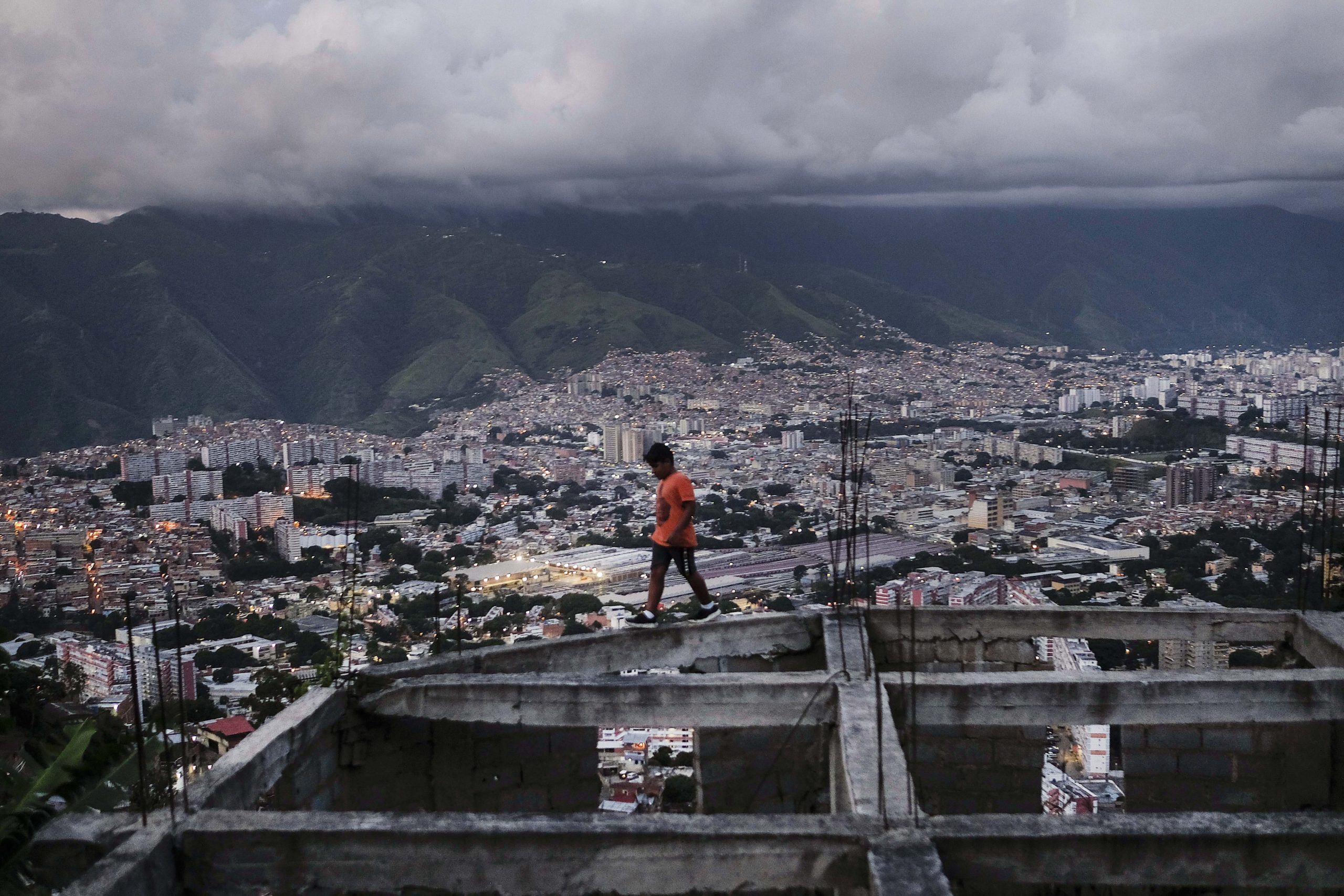
A boy walks on an unfinished house in the El Quilombo neighborhood of Caracas, Venezuela
In November of 2017, I made the unpopular decision to move back home to Venezuela.
Most people are going in the other direction. More than 5.6 million Venezuelans have left the country, including most of my own family, since 2015 to escape an unprecedented political and economic crisis. The mass exodus has become the largest displacement crisis in the region’s history.
Moving back after eleven years away wasn’t an easy decision, and it involved convincing my family — mainly my mother — that I would be okay in a country where food shortages are the norm, access to healthcare is increasingly complicated, and power and running water are a luxury. I couldn’t really sugarcoat it because they knew what I was getting into. In fact, like millions of others, they had spent the last decade trying to escape it.
But the truth is, I was working as an economics reporter for Bloomberg in Washington, D.C., but my mind was elsewhere. For months, I had woken up to shaky video footage of protesters clashing with security forces under clouds of tear gas. I had fallen asleep swiping through photos of homemade shields and shallow graves. I was helplessly watching my country’s demise and desperately wanted to be in the middle of it. So, legs shaking, I packed my bags and returned to my hometown of Caracas.
It’s no surprise I found a very different place than the one I’d left. In the late 1940s, Caracas was the city of infinite opportunity that my maternal grandparents called home after escaping the Spanish civil war and Franco’s military dictatorship. In the early 1970s, it was the city where my parents could walk to school and hitchhike to the beach. But this was not the Caracas my sisters and I grew up in. Instead, due to my family’s relative privilege, it was one that we mainly experienced through car windows or from behind tall fences wrapped in barbed wire. In 2017, I returned to a city that mostly just felt empty and abandoned.
Hoping to reconnect with Caracas after so many years away, I decided to take up running. I’d lace up my shoes and hit the pavement shortly after sunrise, and suddenly, I could run confidently past the streets I had been told to stay away from as a child. The city that I loved and belonged to but had somehow felt so distant started growing around me, one kilometer at a time.
For most of my life, I felt like a passive victim of the seismic political shifts that had shaped my country. And just like running allowed me to regain ownership over my own city, journalism has helped me to regain power over my own story. Being a reporter gave me the power to actively witness and reveal what once felt disempowering. In his book “The Politics of Storytelling,” Harvard Divinity School Professor Michael D. Jackson describes storytelling as giving us a sense that even though we do not exactly determine the course of our lives, we can at least have a hand in defining their meaning.
I found meaning, agency, and purpose in reporting on Venezuela and its people: the pregnant women navigating a broken health care system, the growing tribes of street kids flooding the city streets, and the surreality of a booming luxury dollar market as hunger gnawed away at vast portions of the population.
Yet as Bloomberg’s Bureau Chief, I belonged to a privileged group of correspondents who could earn thousands of dollars a month for reporting on Venezuela for international media. The average local journalist working for an independent outlet would be lucky to make a couple hundred of dollars over the same period.
During my time as a Nieman fellow, I want to think more deeply about how decades of hunger, desperation, and disease have stripped Venezuelans from their roles as political beings. What will that mean when it’s time to rebuild our country?
After years of interviewing Venezuelans across the political divide, I understood that if you take the time to be curious about someone, mainly those you disagree with, it’s much easier to see how you would have made the same choices had you been in their shoes.
Moving back to Caracas was a difficult decision, but it was the best decision I’ve ever made. I like to think everyone has their version of Caracas, a literal or figurative place that makes it all worth it. The reason why we put so much of ourselves into our work.
Whatever that reason is, I hope it inspires you to lace up your running shoes and race towards the fire.

